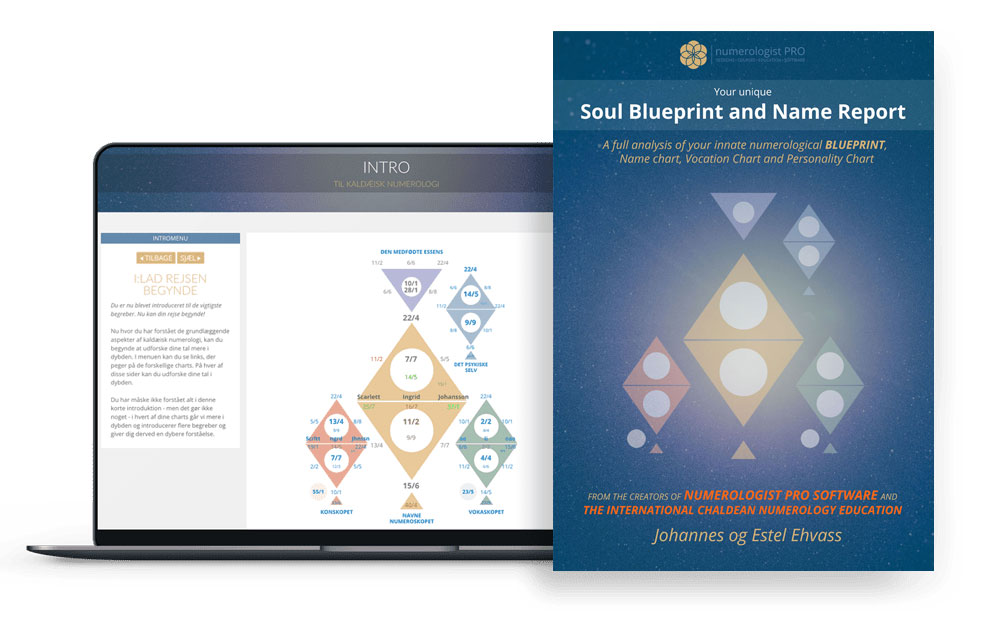Saturn in Astrology

Johannes Ehvass
Welcome, dear reader! In this series of articles, we delve into the fascinating realm of astrology and its emphasis on the heavenly bodies. Each heavenly body, replete with its own attributes and mythic tales, significantly influences our personalities, destinies, and the subtle web of connections in our lives. As we explore these celestial bodies, we will uncover the enduring insights and intricate details that make astrology an intriguing and enduring field. Join me on this journey to discover the mysteries and allure of the planets.
Saturn: The Taskmaster of the Cosmos
Astronomical Significance:

Saturn, recognized for its majestic and intricate ring system, is the sixth planet from our Sun. These rings, primarily composed of ice particles with a smaller fraction of rocky debris and dust, have long been a source of fascination for astronomers and space enthusiasts. The rings offer a visual spectacle that stands as a testament to the universe’s intricate designs and mysteries.
The planet is not just significant for its rings. Saturn takes approximately 29.5 years to orbit the Sun, which is a significant period in astrology known as the ‘Saturn Return’. This nearly three-decade-long journey speaks to Saturn’s enduring influence both astronomically and astrologically.
Symbolic Representations:
The legacy of Saturn extends beyond its physical characteristics. Symbolically, it holds deep implications. Saturn stands as an emblem of discipline, responsibility, structure, and the inexorable passage of time. The planet demands respect in its methodical, persistent way, teaching lessons that, although often difficult, are essential for growth and maturation.
Historically, Saturn, or Cronus as he was known in Greek mythology, was the god of time and harvest. He played a pivotal role in the Titanomachy, a ten-year series of battles fought in Thessaly. This series of confrontations pitted the Titans, led by Cronus, against the Olympians, who eventually emerged as victors. In these tales, Cronus’ association with cycles – of creation, destruction, and rebirth – becomes evident. Just as crops are sown, grow, and are then harvested, so too do the lessons of Saturn in our lives follow a similar pattern.
Saturn in Astrological History:
The vast annals of astrological traditions have always afforded Saturn a position of importance. The planet is often perceived as a strict teacher or taskmaster, presenting challenges and obstructions that require patience and persistence to overcome. These trials, while tough, are not cruel. Saturn aims to teach, to instill discipline, and to impart the wisdom that comes with experience and age.
In ancient astrological practices, Saturn was often seen as a harbinger of challenges. However, it was also acknowledged that facing and overcoming these Saturn-induced challenges led to the greatest rewards. Growth, maturation, and self-realization often come at the heels of Saturn’s trials. Its significance is not just about representing hurdles, but also the strength, discipline, and wisdom one gains in surmounting them.
Interestingly, while Saturn’s lessons are universal, they are also deeply personal. The planet’s placement in one’s natal chart can offer profound insights into the areas of life where these lessons might manifest most prominently. This could range from career and relationships to personal growth and spiritual evolution.
In conclusion, Saturn’s multifaceted influence, from its majestic presence in the night sky to its profound symbolic and astrological implications, is undeniable. As the Taskmaster of the Cosmos, Saturn serves as a reminder of the cycles of time, the importance of discipline, and the deep lessons that life has to offer. Embracing Saturn’s teachings, while challenging, paves the way for personal growth, wisdom, and, ultimately, mastery over one’s destiny.
Saturn in Major Astrological Traditions
Western Astrology:
In the realm of Western Astrology, Saturn is often referred to as the taskmaster or the great teacher. Its placement in a natal chart can illuminate areas of life where individuals may face challenges, but also where they can achieve mastery through dedication and perseverance. Western astrologers regard Saturn as a planet that tests and refines through restrictions and limitations.
Moreover, Saturn returns, which occur approximately every 29.5 years, are significant milestones in an individual’s life. These periods often bring about profound introspection, re-evaluation of life goals, and notable life changes. They are times of coming of age, self-discovery, and crystallization of one’s life purpose.
Vedic (Indian) Astrology:
In Vedic Astrology, Saturn, or ‘Shani’ as it is known in Sanskrit, is a pivotal planetary influence. While it’s often viewed with a sense of trepidation due to its challenging nature, Shani is also respected for the deep lessons and maturity it brings. It’s a planet that slows things down, forcing individuals to practice patience and introspection.
Shani’s influence in one’s chart speaks of karmic lessons from past lives and the debts one must pay in this life. Its transit, known as ‘Sade Sati’, a 7.5-year period when Saturn moves through the 12th, 1st, and 2nd houses from one’s Moon sign, is especially noteworthy. It’s a time of profound transformation, challenges, but also immense growth for those who navigate it with grace and resilience.
Chinese Astrology:
While Chinese Astrology primarily revolves around a 12-year cycle of animals, planetary observations, including that of Saturn, have also found their way into certain practices. Historically, Saturn was associated with the element of Earth, symbolizing stability, persistence, and the foundational aspects of life.
Its influence is believed to be grounding, bringing about structure and order, much like the foundational Earth element. Those under strong Saturnian influence in Chinese astrological practices might find themselves more drawn to professions that require patience, structure, and methodical planning.
Mayan, Egyptian, and other traditions:
Mayan astronomy, deeply intertwined with their spirituality and calendar systems, observed Saturn as a significant celestial body. Its cycles were integrated into the broader understanding of time and cosmic order. The Egyptians, on the other hand, had associations of Saturn with the god Horus, a deity of the sky and kingship. Saturn’s methodical movement across the sky resonated with the Egyptian principles of order and ma’at (balance).
Other ancient cultures, from the Babylonians to the Persians, have had their interpretations and mythologies associated with Saturn. Though the stories vary, a common thread is the recognition of Saturn’s enduring, methodical nature and its role in teaching through challenges.
In sum, Saturn’s influence stretches across diverse astrological traditions, each offering unique insights into the planet’s role in shaping destinies. While it may bring about periods of challenges, it’s always with the aim of growth, self-realization, and enduring wisdom.
Saturnian Influence Through the Zodiac
Saturn in Aries:
When Saturn transits Aries, it brings forth challenges related to identity and initiation. Those with this placement might feel a pressing need to define themselves but may also encounter obstacles in doing so. Patience is essential here, as Aries’ impulsiveness is tempered by Saturn’s call for discipline.
Saturn in Taurus:
In the fixed earth sign of Taurus, Saturn emphasizes matters of security, material wealth, and values. Individuals may find themselves questioning their worth or re-evaluating what they truly value in life. Financial challenges can arise, pushing for better financial discipline.
Saturn in Gemini:
Saturn in Gemini puts a focus on communication and learning. It’s a period where superficial knowledge won’t suffice. Deep study, concentration on a particular subject, and refined communication skills become paramount.
Saturn in Cancer:
When Saturn transits Cancer, the focus shifts to matters of home, family, and emotional security. One might grapple with themes of belonging or face challenges related to their home environment. It’s a time to build strong emotional foundations.
Saturn in Leo:
Leo’s expressive nature meets Saturn’s restrictive energy in this transit. Matters of personal expression, romance, and creativity are tested. The challenge here is to find authentic self-expression while working within Saturnian boundaries.
Saturn in Virgo:
With Saturn in Virgo, the emphasis is on routine, health, and service. A call to refine one’s daily habits, take health seriously, and serve with diligence and discipline becomes prominent.
Saturn in Libra:
Relationships come into focus with Saturn in Libra. Balancing personal needs with those of partners, understanding the dynamics of give and take, and learning the lessons of commitment are themes that surface.
Saturn in Scorpio:
Scorpio’s transformative energy coupled with Saturn brings about deep introspection, especially related to shared resources, intimacy, and personal transformation. It’s a time of profound internal change, where secrets and deep-seated issues might surface for resolution.
Saturn in Sagittarius:
With Saturn in Sagittarius, the focus shifts to belief systems, higher learning, and travel. Individuals are prompted to question their beliefs, refine their philosophical outlooks, and approach exploration with a sense of purpose.
Saturn in Capricorn:
As Saturn transits its home sign of Capricorn, issues related to career, structure, and ambition come to the fore. It’s a potent period for building long-lasting structures and climbing the ladder of success, albeit with patience and diligence.
Saturn in Aquarius:
In the innovative sign of Aquarius, Saturn prompts individuals to question societal norms, work for the collective, and integrate discipline into their aspirations. It’s a time of structured innovation and working for the greater good.
Saturn in Pisces:
As Saturn transits the watery depths of Pisces, themes of spirituality, compassion, and dreams surface. Individuals are called to ground their dreams in reality, approach spirituality with discipline, and serve with empathy and compassion.
In conclusion, Saturn’s transit through the zodiac brings with it a plethora of challenges and lessons tailored to the essence of each sign. While its influence might seem restrictive, its ultimate goal is to instill discipline, perseverance, and maturity in individuals, leading them towards lasting success and wisdom.
Part 4: Saturn in Houses and Aspects
Saturnian Houses:
Saturn in the 1st House:
When Saturn resides in the 1st house, it often relates to issues of self-identity, discipline, and personal boundaries. These individuals might have a serious demeanor and are often cautious about presenting themselves to the world.
Saturn in the 2nd House:
Saturn in the 2nd house brings lessons related to self-worth, material possessions, and financial matters. It often pushes individuals to adopt a disciplined approach to finances and to evaluate what they truly value.
Saturn in the 3rd House:
With its placement in the 3rd house, Saturn highlights areas of communication, learning, and immediate surroundings. It may indicate a careful, methodical way of thinking and communicating.
Saturn in the 4th House:
Saturn in the 4th house emphasizes the domains of home, family, and one’s roots. It could indicate challenges related to one’s family or home environment, pushing individuals to create a stable and secure foundation.
Saturn in the 5th House:
In the house of creativity and romance, Saturn may impose restrictions or challenges related to self-expression, romantic relationships, and personal hobbies. Over time, individuals learn the value of patience and persistence in these areas.
Saturn in the 6th House:
When Saturn resides in the 6th house, matters of health, daily routines, and work become focal points. It often encourages a disciplined approach to health and a strong work ethic.
Saturn in the 7th House:
In the house of partnerships, Saturn brings lessons related to relationships, both personal and business. It often signifies long-lasting, stable partnerships but not without effort and commitment.
Saturn in the 8th House:
Saturn’s placement here emphasizes shared resources, transformations, and deep introspection. It pushes individuals to face deep-seated fears and often brings lessons related to shared finances.
Saturn in the 9th House:
In the 9th house, Saturn focuses on higher learning, philosophy, and travel. Individuals might be drawn to disciplined study or may approach spirituality and beliefs with seriousness.
Saturn in the 10th House:
With its placement in the house of career and public reputation, Saturn drives individuals to work hard for their ambitions. It can indicate a slow but steady climb to success in one’s professional life.
Saturn in the 11th House:
Here, Saturn highlights friendships, group activities, and aspirations. It may indicate lessons related to one’s social circle or challenges in realizing long-term dreams and hopes.
Saturn in the 12th House:
In the house of the subconscious, Saturn urges introspection, solitude, and often brings about challenges that require deep internal work. It’s a placement that encourages spiritual discipline and inner reflection.
Aspects with Other Planets:
Saturn Conjunct Venus:
This aspect often indicates lessons in love and relationships. While it may bring about challenges, it also instills durability and long-lasting bonds in relationships.
Saturn Square Mercury:
With this aspect, individuals may face obstacles in communication or in their thought processes. It urges a disciplined approach to learning and communication.
Saturn Trine Mars:
This harmonious aspect infuses one’s drive and ambition with discipline and persistence. It’s an indicator of steady, productive energy in pursuing one’s goals.
In essence, Saturn’s influence in different houses and its aspects with other planets provide invaluable insights into an individual’s life lessons, challenges, and areas requiring discipline and maturity. Its presence, while often seen as restrictive, serves to ground and crystallize the energies of other planets and domains of life.

Johannes & Estel: Renowned authorities in Numerology, Astrology, and the esoteric arts. As the founders of Scandinavia's premier Numerology school, we're delighted to share our insights through this curated series on astrology. Dive in and discover the stars.
The Worlds Most Advanced Numerology Report

Your birthdate reveals your unique life purpose, potentials, talents, weaknesses, and karma in this life.
Your names show what you attract into your life regarding your career, relationships, happiness, money, and success.
GET THE REPORT HERE
Introduction to Astrology
The history of Astrology
Moving beyond deterministic astrology
Foundation of Astrology: Planets, Signs and Houses
Astrology and the Holographic Universe
The Holographic Universe
The Human Psyche as a Mirror to The Solar System
The Human Body as a Mirror to The Star Signs
Astrology Background
Egyptian Astrology
Mayan Astrology
Chinese Astrology
Indian Astrology - Jyotish
Celtic Astrology
Tibetan Astrology
Mesopotamian Astrology
Early Mesopotamian Astrology: The Dawn of Celestial Divination
Enuma Anu Enlil: The Epicenter of Babylonian Celestial Omen Interpretation
Babylonian and Chaldean Astrology
Babylonian and Chaldean Astrology
Chaldean influence and evolution
Chaldean Wisdom: Safeguarding and Transmitting Astrological Knowledge
Hellenistic Astrology
Hellenistic Astrology background
Claudius Ptolemy and Tetrabiblos
Vettius Valens
Dorotheus of Sidon
Persian Astrology
Persian Astrology background
Sassanian Astrology
Late Antiquity and The Transition Period
Late Antiquity and The Transition Period
Hellenistic to Islamic Transition: The Torchbearers of Astrological Wisdom
Islamic Golden Age
Arabian Astrology Background
Arabian Astrology Contributions
Medieval Astrology
Introduction: The Medieval Cosmos
Monastic Preservers: Astrological Knowledge in the Dark Ages
Astrology in Medieval Medicine
Kings, Queens, and Constellations: Astrology in the Medieval Court
The Church and the Stars: A Contentious Relationship
Universities and Scholastic Pursuits: Academic Astrology
Astronomy & Astrology: Tools of the Trade
Medieval Astrological Houses and the Synthesis of Traditions
Transition to the Renaissance: Humanism and the Celestial Arts
Reflections: Medieval Astrology's Echoes in Modern Practice
Astrological Art of the Middle Ages
Famous Medieval Astrologers
Medieval Astrological Texts
Renaissance Astrology
Renaissance Humanism and Astrology
Scientific Advancements and Astrology
The Social Fabric: Astrology in Everyday Renaissance Life
Court Astrologers of the Renaissance
Controversies and Conflicts: Astrology Under Scrutiny
Renaissance Texts and Authors: Continuation of a Tradition
Astrology and Art: Celestial Imagery in the Renaissance
Renaissance Astrological Practices: Evolutions and Innovations
End of the Renaissance: The Gradual Decline of Astrological Influence
Renaissance Astrology's Echo in the Modern World
Enlightenment Astrology
Introduction: The Enlightenment and Astrology
Challenging the Stars: Astrology's Critics during the Enlightenment
Astrology and the New World
Astrology in the 19th Century
The Dawn of Psychological Astrology
Astrology in the 20th Century: A Modern Renaissance
Astrological Associations and Schools
Modern Controversies and Astrology
Astrology and Popular Culture
Astrology and Technology
Current Trends and Future Directions in Astrology
Conclusion: Reflecting on Astrology's Evolution
The Planet Significances
The Sun in Astrology
The Moon in Astrology
Mercury in Astrology
Venus in Astrology
Mars in Astrology
Jupiter in Astrology
Saturn in Astrology
Uranus in Astrology
Neptune in Astrology
Pluto in Astrology
Chiron in Astrology
Black Moon Lilith in Astrology
Pars Fortuna in Astrology
Ceres in Astrology
Houses in Astrology
Introduction to Astrological Houses
The Angular Houses
The Succedent Houses
The Cadent Houses
The 1st House
The 2nd House
The 3rd House
The 4th House
The 5th House
The 6th House
The 7th House
The 8th House
The 9th House
The 10th House
The 11th House
The 12th House
Interaction Between Houses
Derived Houses, House Rulers, and Interceptions
Conclusion: Synthesizing House Knowledge
All Materials © 2023 & 2024 Numerologist PRO
Terms of Service: Information provided by Numerologist PRO and/or from this web site is not intended as advice (medical, psychological, financial or other), nor is it intended to replace your work with a qualified professional (medical or otherwise). You should maintain your relationship with your providers and consider the services of this site as informational only. Any information, stories, examples, or testimonials presented on this website do not constitute a warranty, guarantee, or prediction regarding the outcome of an individual. This web site is a sharing of knowledge and information of numerology/energy work based on the experiences of Numerologist PRO. You are encouraged to make your own decisions based on your own research and inner guidance. By booking and receiving services, you agree to fully release and hold harmless Numerologist PRO and all it's affiliated numerologists from and against any liability or claim that may arise out of or in connection with their service(s).
Numerologist PRO © 2021

CONTACT
numerologist@numerologistpro.com
LIKE US, and get free numerology tools, info about your personal numbers, best business dates of the year - and more!
YOUR FREE NUMEROSCOPE CHART
Enter your name and email below and get access to our free online numerology chart tool.